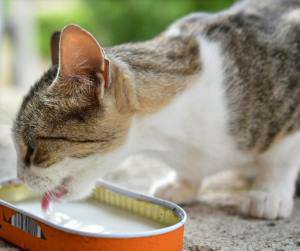
In a quiet, 14-minute meeting that lacked public participation, North Carolina lawmakers slipped a provision into Senate Bill 639—part of the 2025 Farm Act—that would ban the sale of raw milk in the state, even when clearly labeled and sold for pet consumption only. The move, ostensibly about public safety, actually raises serious questions about transparency, consumer freedom, and economic fairness.
.
Let’s be clear: This is not about unregulated human food. The raw milk targeted by this bill is sold specifically for pets. It’s clearly labeled “not for human consumption,” as required by law, and it is used by thousands of pet owners who feed it to their cats and dogs as part of a nutritionally diverse diet.
So why the ban?
.
Supporters of the bill argue that raw milk is dangerous. But that blanket assertion ignores the context: pets, not people, are the intended consumers. Thousands of dogs and cats across North Carolina—and in 47 other U.S. states—are thriving on diets that include raw milk. Responsible pet owners are not asking for permission to give their animals junk food; they’re seeking the freedom to feed biologically appropriate, minimally processed nourishment. For many animals, raw milk supports better digestion, healthier coats, and improved energy.
.
Critics claim the milk is being secretly consumed by humans. But we don’t ban xylitol, which is toxic to dogs, or antifreeze, which can kill pets and people, just because there’s a risk of misuse. We rely on labeling, education, and consumer responsibility. Why should raw pet milk be treated differently?
.
Even more troubling is the bill’s potential to interfere with interstate commerce. By banning the sale of raw milk—even for pet use—North Carolina risks violating constitutional protections under the Commerce Clause. The state would be blocking legal products shipped from other states where raw milk sales for pets are explicitly permitted. That’s not just bad policy; it’s a legal liability.
.
And where is the Association of American Feed Control Officials (AAFCO), the national body that helps shape pet food regulation? Years ago, AAFCO drafted model legislation for the safe sale and labeling of raw milk for pets. If AAFCO genuinely represents the needs of all pet food manufacturers, we encourage it to speak up in defense of this product to NC – one of its member states.
.
The deeper issue here is choice. If the government’s mission is to eliminate every product that could potentially be misused, we’d all be living in padded rooms. That’s not the American way. We value personal freedom and responsibility—especially when it comes to how we care for our families, including the four-legged members.
.
Senate Bill 639 isn’t just about milk. It’s about who gets to decide what’s best for our pets, our families, and our communities. This bill sets a dangerous precedent: that the government can preemptively ban products because it doesn’t trust people to use them properly—even when no clear harm has been demonstrated.
.
We deserve better. Lawmaking should be transparent, evidence-based, and responsive to public input. If lawmakers believe raw milk for pets poses a genuine risk, they should make their case openly, invite public comment, and provide scientific data. Quiet bans pushed through closed-door meetings are not how democracy is supposed to work.
.
North Carolinians have the right to choose how they care for their pets. Let them.

